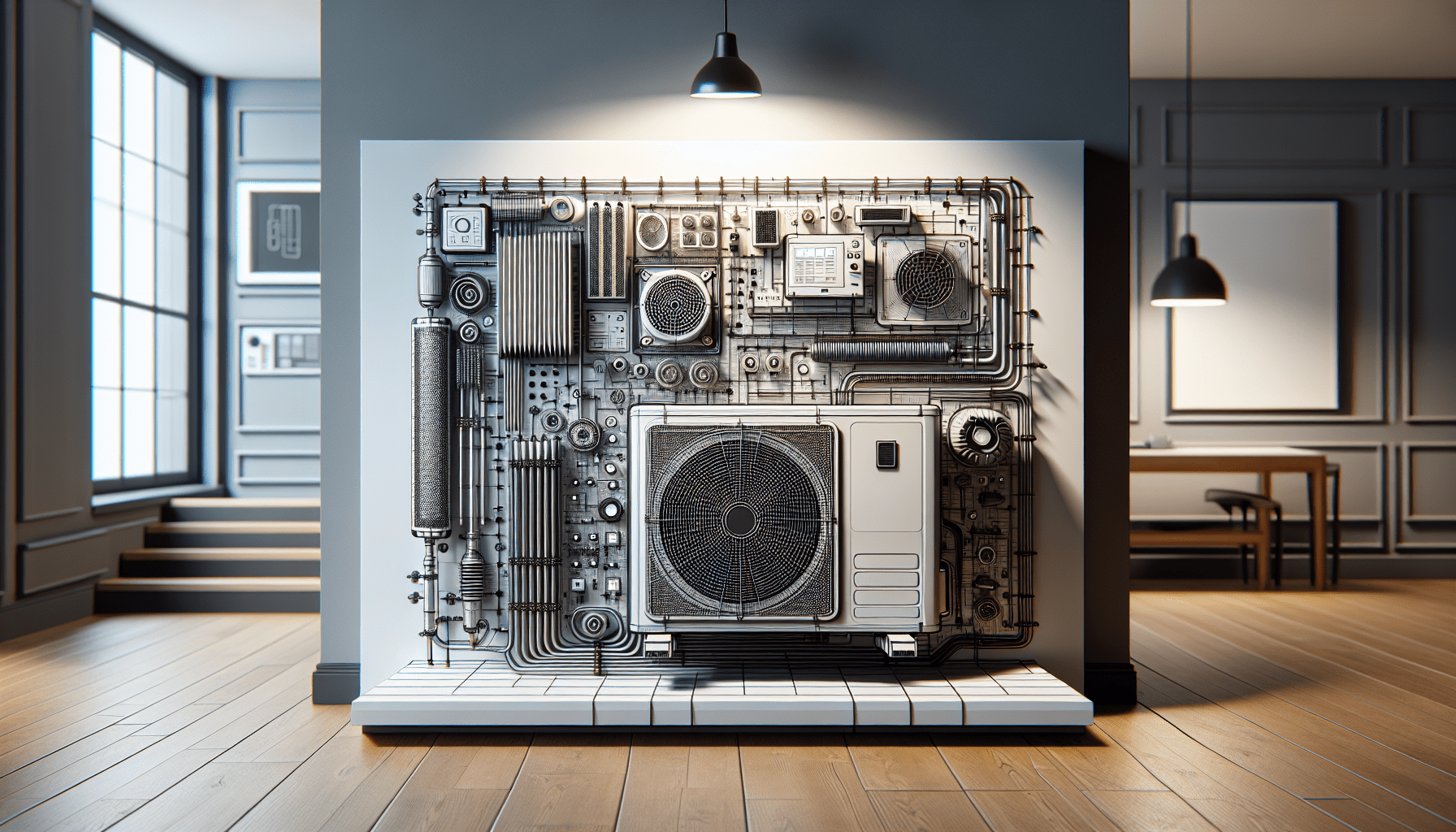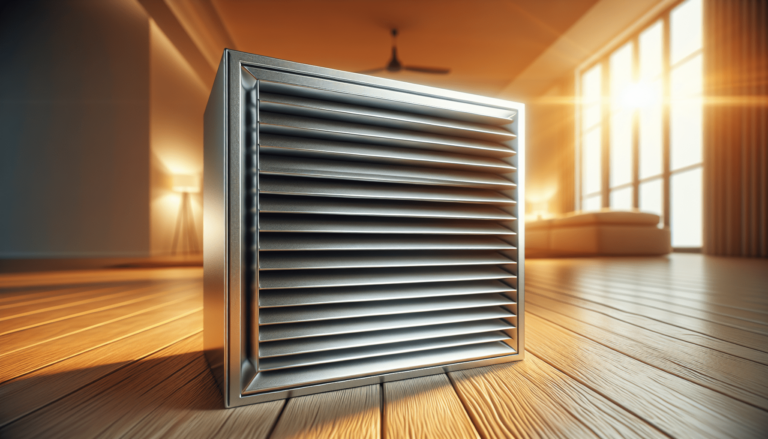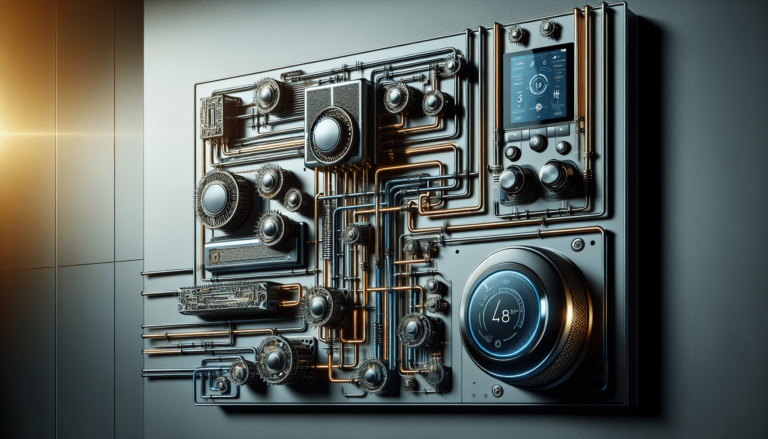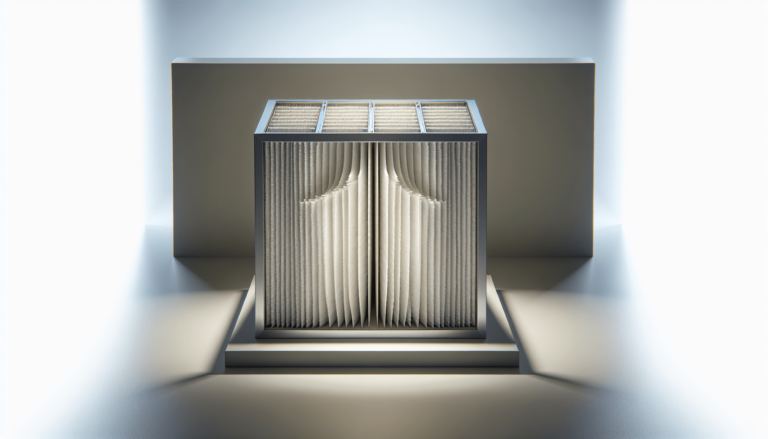

HVAC Services
Get Professional Repairs From The Area's Trusted HVAC Technicians. Ask About Our Services! We Offer Professional Heating & Cooling System Repairs And Guarantee Long-Lasting Results.
Got Question? Call us: (850) 678-2665Financing
HVAC Warranty: What’s Covered And What’s Not
Ever puzzled over what's covered under your HVAC warranty? This guide unravels the mystery, helping you understand terms, avoid pitfalls, and maximize your coverage. #HVACWarranties

Have you ever found yourself confused about what exactly is covered under your HVAC warranty? Navigating the terms and conditions of any warranty can be tricky, and HVAC warranties are no different. Fortunately, we’re here to help untangle the web of information surrounding HVAC warranties, so you can get the most out of your system without any unwelcome surprises.

Understanding HVAC Warranties
An HVAC warranty is essentially a safety net for your heating, ventilation, and air conditioning system. It outlines what components and repairs are covered, how long the coverage lasts, and often, what steps you must take to maintain it.
Types of HVAC Warranties
There can be multiple types of warranties associated with an HVAC system, each covering different aspects. Here are the main ones you should know about:
- Manufacturer’s Warranty: This is offered by the manufacturer and typically covers defects in materials and workmanship.
- Labor Warranty: Provided by the installer, this covers the cost of labor associated with repair or replacement.
- Extended Warranty: This can be purchased separately and extends the coverage beyond the terms of the manufacturer’s and labor warranties.
Each type serves its own purpose and adds a different layer of protection for your HVAC system.
What’s Covered Under an HVAC Warranty
You probably want to know what’s typically covered so you can have peace of mind in case anything goes wrong. Let’s break it down.
Manufacturer’s Warranty
A manufacturer’s warranty generally covers:
- Parts: Major components like compressors, condensers, and coils.
- Defects: Any defects in materials or workmanship.
Labor Warranty
A labor warranty usually covers:
- Repair Labor: The cost of labor for repairs.
- Installation Errors: Incorrect installation work.
Extended Warranty
Extended warranties can add additional coverage for:
- Additional Parts: Beyond the basic ones covered by the manufacturer.
- Longer Coverage Periods: Extending beyond the standard warranty duration.
| Warranty Type | Typically Covers | Duration |
|---|---|---|
| Manufacturer’s | Parts, Defects | 5-10 years |
| Labor | Repair Labor, Installation Errors | 1-2 years |
| Extended | Additional Parts, Longer Coverage | Varies, often 5-10+ years |
What’s Not Covered Under an HVAC Warranty
Now, let’s tackle what’s typically NOT covered under HVAC warranties, as this can save you from any potential misunderstandings later on.
Negligence
Your warranty won’t cover damage resulting from neglect or improper use. Skipping annual maintenance checks can void your warranty, so keep your system in good shape.
Acts of Nature
Most warranties won’t cover damages due to natural disasters like floods, hurricanes, or earthquakes.
Unauthorized Repairs or Alterations
Using unauthorized parts or not having repairs done by certified technicians can void your warranty. Make sure to follow the prescribed guidelines.
| Not Covered By Warranty | Examples |
|---|---|
| Negligence | Skipping maintenance, improper system use |
| Acts of Nature | Floods, hurricanes, earthquakes |
| Unauthorized Repairs/Alterations | Using unapproved parts, non-certified technician repairs |
Maintaining Your HVAC Warranty
Keeping your warranty intact requires a bit of effort on your part. Here are some practical tips:
Register Your Warranty
Always register your HVAC system with the manufacturer shortly after installation to ensure the warranty is valid.
Regular Maintenance
Annual or bi-annual maintenance is often a requirement for keeping your warranty active. Scheduled professional check-ups can help you spot potential issues early.
Keep Records
Hold onto all service records, receipts, and warranty documentation. These are crucial should you need to make a claim.

Making a Warranty Claim
When a problem occurs, knowing how to file a warranty claim efficiently can save you time and stress.
Identify the Issue
Before calling for warranty service, make sure the issue is actually covered under your warranty. Review your warranty documentation for this.
Contact the Right Party
Depending on your warranty type, you need to contact the manufacturer, the installation company, or the provider of your extended warranty.
Provide Documentation
When making a claim, you’ll need to supply your warranty information, purchase receipts, and possibly maintenance records. Make it a habit to keep these documents organized and accessible.
Follow Up
Don’t be afraid to follow up if you don’t hear back promptly. Keep records of all communications for future reference.
The Role of Tempacure Heating and Air Conditioning
For residents in Niceville, FL, Tempacure Heating and Air Conditioning is a reliable option for HVAC installation and services. They can guide you through the warranty process and help ensure your system remains under warranty for as long as possible.
Contact Information:
Tempacure Heating and Air Conditioning
325 Cedar Ave S, Suite B
Niceville, FL 32578
(850) 678-2665
Visit Website
Troubleshooting Common Issues
Let’s face it, sometimes issues arise, and knowing how to troubleshoot can be invaluable.
Unusual Noises
If your system is making strange noises, it could be something minor or a sign of a more significant issue. Always consult the warranty guidelines to see if service can be covered.
Inconsistent Temperatures
Spots in your home that are hotter or colder than others might indicate an issue with the ducts or the system balancing which could be covered by a labor warranty.
Higher Energy Bills
A sudden spike in your energy bill could signify that your system is not operating efficiently. This may fall under defect-related repairs if identified promptly.
Benefits of an HVAC Warranty
Having an HVAC warranty can provide numerous benefits:
Peace of Mind
You won’t have to worry as much about unexpected repair costs or system failures.
Financial Protection
A warranty can save you significant money on replacements and repairs over the lifespan of your HVAC system.
Increased Resale Value
A transferable HVAC warranty can be an attractive feature if you plan to sell your home.
Conclusion
Understanding your HVAC warranty can feel overwhelming, but it doesn’t have to be. By knowing what’s covered, what’s not, and how to maintain your warranty, you can enjoy peace of mind and a well-functioning system. If you ever have any questions or need professional advice, Tempacure Heating and Air Conditioning is just a call or click away, ready to help you get the most out of your HVAC investment.
Don’t forget, well-maintained documentation and regular professional check-ups are your best friends in ensuring that your HVAC warranty is as beneficial as possible. Keep your system running smoothly, and your home comfortable with the right knowledge and resources at hand.







